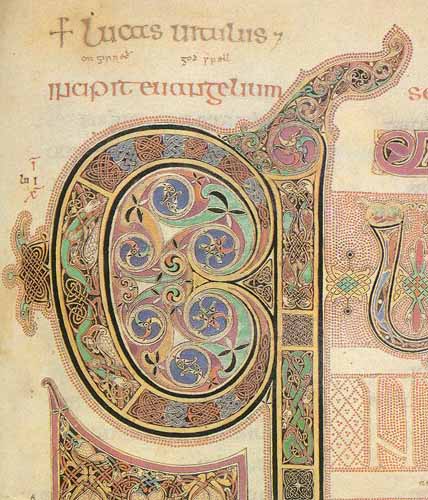CHAPTER TWENTY THREE: BETTER ONE DAY IN HIS COURTS
Eliezer and the two sisters, and several other sympathizers gathered with Jesus very early the next morning to walk with him into the Temple courts. Word got out that he was on the way, and several of the authorities scrambled to come up with a way to put Jesus to the test, in hopes he would lose face with the crowds. All the people gathered around him, and he sat down to teach them. The teachers of the law and the Pharisees brought in a woman caught in adultery. They made her stand before the group and said to Jesus, “Teacher, this woman was caught in the act of adultery. In the Law Moses commanded us to stone such women. Now what do you say?” They were using this question as a trap, in order to have a basis for accusing him.
But Jesus bent down and started to write on the ground with his finger. When they kept on questioning him, he straightened up and said to them, “If any one of you is without sin, let him be the first to throw a stone at her.” Again he stooped down and wrote on the ground. At this, those who heard began to go away one at a time, the older ones first, until only Jesus was left, with the woman still standing there. Jesus straightened up and asked her, “Woman, where are they? Has no one condemned you?”
“No one, sir,” she said.
“Then neither do I condemn you,” Jesus declared. “Go now and leave your life of sin behind.” The older men left quickly for they knew that they were being shamed for not having dealt fairly with this woman. They had not accused or brought forward the woman’s partner and it was the elders in the community who were tasked with being the moral guides of the community responsible to make sure the Law was implemented fairly but with mercy for one and all.
Then Jesus stood up, and said to the crowd: “I am the light of the world. Whoever follows me will never walk in darkness, but will have the light of life.” The Pharisees challenged him, “Here you are, appearing as your own witness; your testimony is not valid.”
Jesus answered, “Even if I testify on my own behalf, my testimony is valid, for I know where I came from and where I am going. But you have no idea where I come from or where I am going. You judge by human standards; I pass judgment on no one. But if I do judge, my decisions are right, because I am not alone. I stand with the Father, who sent me. In your own Law it is written that the testimony of two men is valid. I am one who testifies for myself; my other witness is the Father, who sent me.”
Then they asked him, “Where is your father?”
“You do not know me or my Father,” Jesus replied. “If you knew me, you would know my Father also.” He spoke these words while teaching in the temple area near the place where the offerings were put. Yet no one seized him, because his time had not yet come. Once more Jesus said to them, “I am going away, and you will look for me, and you will die in your sin. Where I go, you cannot come.”
This made the Jewish officials present ask, “Will he kill himself? Is that why he says, ‘Where I go, you cannot come’?”
But Jesus continued, “You are from below; I am from above. You are of this world; I am not of this world. I told you that you would die in your sins; if you do not believe that I am the one I claim to be, you will indeed die in your sins.”
“Who are you?” they asked.
“Just whom I have been claiming all along,” Jesus replied. “I have much to say in judgment of you. But he who sent me is reliable, and what I have heard from him I tell the world.” They did not understand that he was telling them about his Father. So Jesus said, “When you have lifted up the Son of Man, then you will know that I am the one I claim to be and that I do nothing on my own but speak just what the Father has taught me. The one who sent me is with me; he has not left me alone, for I always do what pleases him.” Even as he spoke, many began to put their faith in him.
To those who had believed him, Jesus said, “If you hold to my teaching, you are really my disciples. Then you will know the truth, and the truth will set you free.”
Some answered him, “We are Abraham’s descendants and have never been slaves of anyone. How can you say that we shall be set free?”
Jesus replied, “I tell you the truth, everyone who sins is a slave to sin. Now a slave has no permanent place in the family, but a son belongs to it forever. So if the Son sets you free, you will be free indeed. I know you are Abraham’s descendants. Yet some of you are ready to do away with me, because you have no room for my word. I am telling you what I have seen in the Father’s presence, and you do what you have heard from your father.”
“Abraham is our father,” they answered.
“If you were actually Abraham’s children,” said Jesus, “then you would do the things Abraham did. As it is, you are determined to kill me, a man who has told you the truth that I heard from G-d. Abraham did not do such things. You are doing the things your own father does.”
“We are not illegitimate children,” they protested. “The only Father we have is G-d himself.”
Jesus retorted: “If G-d were your Father, you would love me, for I came from G-d and now am here. I have not come on my own; but he sent me. Why is my language not clear to you? Because you are unable to hear what I say. You belong to your father, the devil, and you want to carry out your father’s desire. He was a murderer from the beginning, not holding to the truth, for there is no truth in him. When he lies, he speaks his native language, for he is a liar and the father of lies. Yet because I tell the truth, you do not believe me! Can any of you prove me guilty of sin? If I am telling the truth, why don’t you believe me? He who belongs to G-d hears what G-d says. The reason you do not hear is that you do not belong to G-d.”
Some of the Jewish authorities who had heard that Jesus had spent time in Samaria and had converts there said, “Aren’t we right in saying that you are a Samaritan and demon-possessed?”
“I am not possessed by a demon,” said Jesus, “but I honor my Father and you dishonor me. I am not seeking glory for myself; but there is one who seeks it, and he is the judge. Amen, amen I say to you, if anyone keeps my word, he will never see death.”
At this these Jewish officials exclaimed, “Now we know that you are demon-possessed! Abraham died and so did the prophets, yet you say that if anyone keeps your word, he will never taste death. Are you greater than our father Abraham? He died, and so did the prophets. Who do you think you are?”
Jesus replied, “If I glorify myself, my glory means nothing. My Father, whom you claim as your G-d, is the one who glorifies me. Though you do not know him, I know him. If I said I did not, I would be a liar like you, but I do know him and keep his word. Your father Abraham rejoiced at the thought of seeing my day; he saw it and was glad.”
“You are not yet fifty years old,” these Jewish authorities said to him, “and you have seen Abraham!”
“I tell you the truth,” Jesus answered, “before Abraham was born, I am!”
At this, some picked up stones to stone him, but Jesus hid himself, slipping away from the temple grounds. Saying a quick goodbye to Eliezer, Martha and Mary, he embraced his friends, and then slipped out of town heading once more towards Jericho and the road that led back to Galilee. The situation was intensifying and Jesus knew he had to make the most of the time he still had left.
END OF PART ONE

